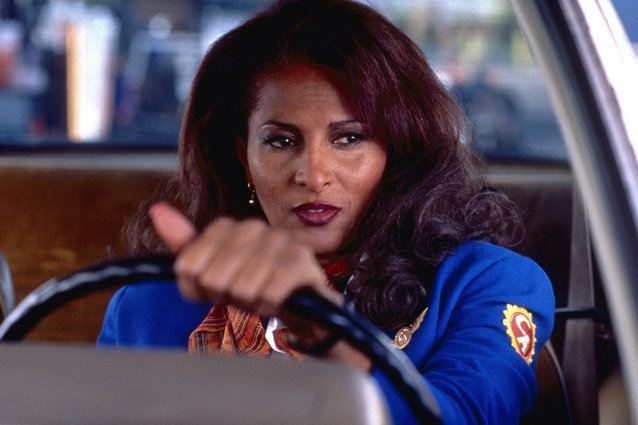
When most people claim that Pulp Fiction is Quentin Tarantino’s best movie, I often wonder if they’ve seen Jackie Brown. I assume they haven’t.
Jackie Brown is Tarantino’s third film, releasing after he became a household name with Reservoir Dogs and Pulp Fiction, and most casual moviegoers and die-hard Tarantino fans consider it to be his worst feature. It’s the lowest rated Tarantino film on IMDB and Metacritic (not counting his Grindhouse contribution from 2007), which is saying a lot considering how divisive the Kill Bill films are.
But this is a shame, because Jackie Brown is Tarantino’s masterpiece. Unlike other Tarantino films that rely heavily on cinematic style, this one cares more about the characters and their interactions than about being “cool.”
Consider, for example, the relationship between Jackie (Pam Grier) and Max Cherry (Robert Forster). Tarantino takes his time to develop both of these wounded characters, and as a result, we are invested in their lives. Contrast this to Pulp Fiction, a highly entertaining film that makes no effort to develop its characters. We observe them, to be sure, but what more can we say about Vincent Vega (John Travolta) than that he’s a nonchalant, laid-back hit man who traveled to Europe?
Both films find Tarantino paying homage to movie stars who were once famous. In Pulp Fiction, Tarantino resurrects Travolta’s career, but the fun part about watching that movie is simply observing Travolta in a great film — something audiences at that time hadn’t witnessed since Blow Out.
Jackie Brown does something similar with Grier and Forster, but instead of merely marveling at their star power, viewers are presented with two interesting and unique characters. Jackie, for example, is a black woman who has survived a harsh justice system, and Max is a burnt-out bail bondsman who questions the relevance of his work. Most of the film consists of quiet scenes in which the two share life experiences with one another.
The reason why Jackie Brown isn’t celebrated today, I think, stems from the fact that most of Tarantino’s films are kinetic and ultra-violent. Jackie Brown is the opposite. Instead, Tarantino often pauses throughout the film to let the audience simply hang out with his characters, and the first hour of the movie is virtually plotless. Even the death scenes are less sensational than what Tarantino usually offers.
All of this is not to say that Tarantino’s other films are trash, because I think we can all agree that he’s one of the best working filmmakers in cinema today. Rather, I want to remind viewers of Jackie Brown and stress that it’s not a minor achievement in the auteur’s oeuvre. Maybe there is no “best” Tarantino film, but Jackie Brown certainly isn’t the worst.
Instead of deeming Jackie Brown “boring” because it isn’t full of action or “pointless” because it focuses more on character than story, let’s appreciate the film for what it is than criticize it for what it was never trying to be — another Pulp Fiction. After all, Jackie Brown represents an artful mastery of the cinema that Tarantino hasn’t matched since.
What do you think? Cast your vote below.


